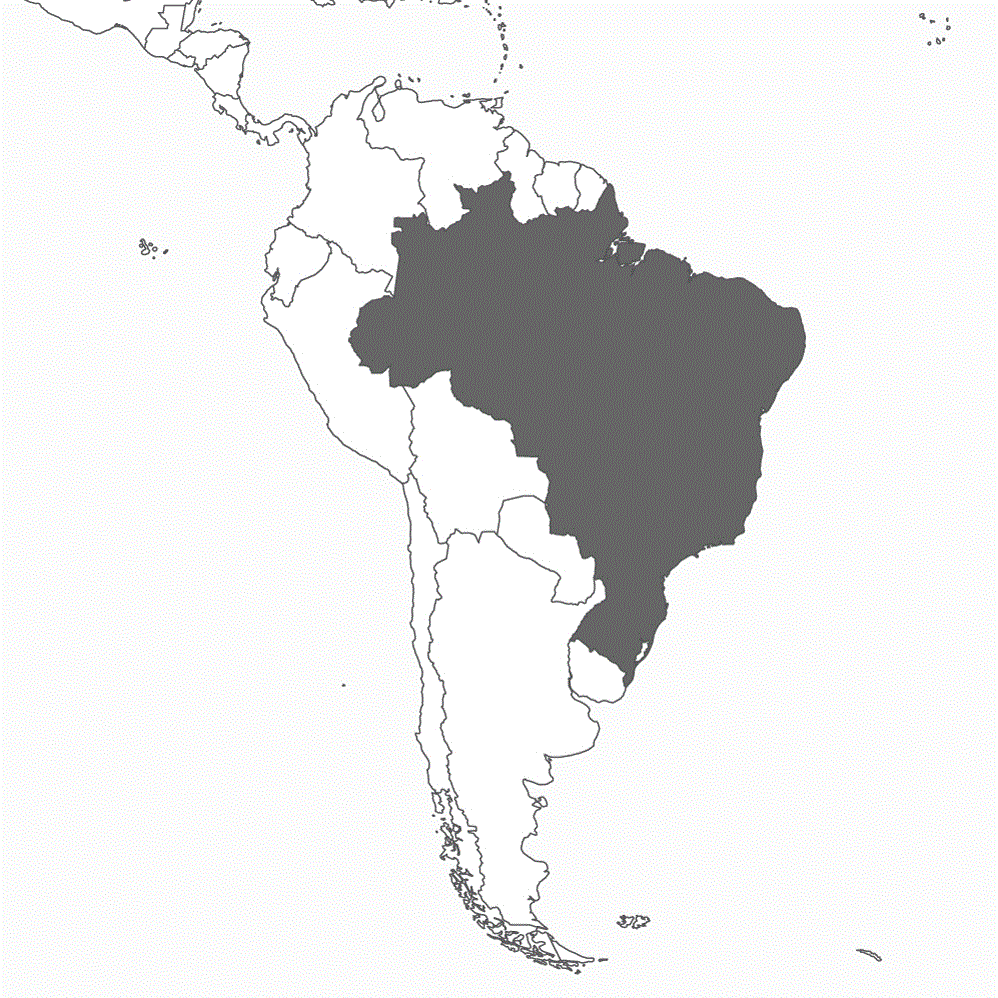New strategic orientation
BERLIN/BONN Various German think tanks in the spheres of politics and economics are reorienting their Latin America strategy. They are demanding a ,,new positioning"of German and European foreign policy because of the economic growth of Latin American countries, the intensification of the integration efforts of these states but particularly because of the growing competition with the Peoples Republic of China. In current studies both the Stiftung Wissenschaft und Politik (SWP), close to the government, and the Konrad-Adenauer-Foundation (KAS), close to the opposition, as well as the Ibero-America Verein, which is close to business, are making recommendations for German policy making. The objective is to bring German influence to bear in Latin America via certain ,,regional powers,"to check the growth of Chinese influence in time and to weaken the US supremacy.
Coordinator: Brazil
The decision taken by twelve Latin American governments last December to form an alliance is for SWP the occasion to weigh the possibilities of pursuing German or European interests on the subcontinent. 1)Together, the states participating in this new alliance represent 45% of the entire continent; have a population of approx. 360 Million and a gross domestic product of approx. US-$973 Billion. SWP is worried that the growing cooperation between these twelve nations could give the alliance a larger global influence and bring more importance to the ,,regional power Brazil."This is why German Latin-America policy should center on Brazil, the traditional focus of German foreign investments, and should ascribe to it the ,,coordinating role for Latin-America."The German foundation is recommending an ,,enlargement of Mercosur space"and for the reinforcement of the integration, which could give this alliance more weight in their relations with the US. Negotiations concerning an EU-Mercosur free trade agreement have already reached a high level and SWP proposes to pursue German or European economic interests through such an agreement.
Rival: China
Latin America is today second in economic growth in the world, right behind Asia. Its economic volume grew last year by approx. 5%. Strong economic growth is also predicted for the coming months. Particularly Venezuela, Uruguay and Argentina show a high increase. 2)Currently Germany is in third place, following the USA and Spain, as an investor in Latin America and the Caribbean, but sees itself, in the long run, in competition with the Peoples Republic of China. While exporting especially natural resources into a booming China, the Latin American states are opening their markets for imports and investments from the Far East. Recently, during the visit of Chinese President, Hu Jintao, several investment treaties were signed. Chinese interest centers on Argentina, Brazil, Venezuela and Cuba. Whereas Chinese investments continuously increased over the last few years, direct investments of western industrial nations in Latin America showed a declining trend. 3)This is why the Ibero-America Institute is calling for a more offensive approach for German business, still concentrating primarily on Brazil and Mexico. 4)The institute is recommending German enterprises to particularly ,,invest in those economic areas that China considers important." 5)
,,Profound crisis"
The political cooperation of several Latin American states (Argentina, Bolivia, Brazil, Chile, Cuba, Mexico, Paraguay, Venezuela) with China and India in the framework of the ,,Group 21"( ,,G 21") are at the center of strategic considerations formulated by the Konrad-Adenauer-Stiftung (KAS). 6)The ,,G 21"caused the break down of the WTO Ministerial Conference in Cancun in 2003 and displayed a ,,new self-confidence of the developing countries"in relation to Europe and the USA, the German Foundation writes. 7)At the same time, there is ,,a profound crisis of democratic institutions," ,,neo-populist and authoritarian tendencies"as well as dangers to security policies in several Latin American countries, KAS alleges. Germany and Europe must intervene to establish ,,an intensified security policy cooperation along with the political cooperation and the economic integration." 8)
Counteract
Berlin, KAS continues, is well-positioned for the role of ,,mediator"in domestic conflicts of the Latin American states, because ,,in the international development cooperation, there is less resentment from developing countries"toward Germany than toward other states. KAS is referring to the widespread criticism of open US influence in Latin America. The Foundation recommends exerting even more influence, than in the past, through so-called non-governmental organizations. ,,Especially political foundations (...) are advising governments and parties in numerous countries,"explains the organization close to the CDU, that is principally state financed. At the same time, attention should ,,more intensively"be given to the descendants of German immigrants, who - as the Ibero-America Verein writes - are playing an important role in numerous countries on the continent. In this category of states are Chile and Brazil, which, along with Mexico, should become the focus of German ,,promotion,"according to KAS. It is ,,without a doubt also in European interests to counteract the region's exclusive orientation on North America,"the German foundation writes. The plea for competition is one of the main tendencies of German foreign policy, which is trying to catch up to US predominance in worldwide influence.
1) Die suedamerikanische Staatengemeinschaft. Ein neuer Partner fuer die EU in Lateinamerika?; SWP-aktuell Dezember 2004
2) China-Boom in Lateinamerika; Neues Deutschland 04.01.2005
3), 4), 5) Investitionen auslaendischer Unternehmen in Lateinamerika; www.iav.de
6) Deutschland & Lateinamerika - Neue Impulse fuer eine bewaehrte Partnerschaft; Konrad-Adenauer-Stiftung e.V. 2004. Ein Jahr nach Cancún - War das Scheitern ein Erfolg fuer die Entwicklungslaender? Perspektiven fuer eine marktwirtschaftlich orientierte Entwicklungspolitik; Konrad-Adenauer-Stiftung e.V. Arbeitspapiere 139/2004
7) Ein Jahr nach Cancún; Konrad-Adenauer-Stiftung e.V. Arbeitspapiere 139/2004
8) Deutschland & Lateinamerika; Konrad-Adenauer-Stiftung e.V. 2004. See also Cooperative Leading Powers
see also ,,Augean Stables"
